How Long Does It Take for Driveway Sealer to Dry? Facts & FAQ
-

- Last updated:
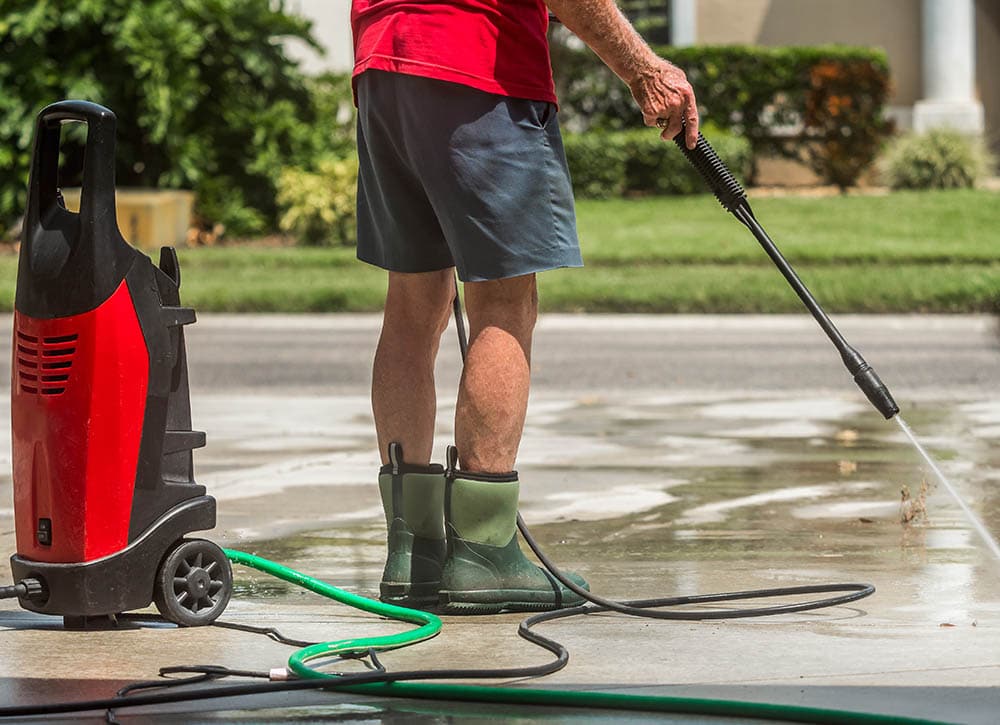
Driveways are quite durable. But they do rely heavily on maintenance, and one of the best products for that is a sealer. It does an excellent job of prolonging the lifespan of asphalt, concrete, and bricks by serving as a protective layer against UV rays, humidity, and cracks. How long does it take for seal coating to dry, though? On average, it dries in 24–72 hours.
If you’re driving a big, heavy vehicle, wait for at least 72 hours. If you only want to walk on the driveway, you can do that after 24–36 hours. The exact waiting period is determined by the driveway, the sealing product, the weather, and other factors. Want to learn more? Then let’s get to it!
 What is a Driveway Sealer?
What is a Driveway Sealer?
Essentially, it’s a rubberized liquid. So, what does it do? Just like regular tar, a driveway sealer has incredibly low permeability to moisture. It’s virtually immune to the sun (UV rays) as well. When applied to concrete or asphalt, it protects the surface from developing cracks, increasing the life cycle. Sealants are effective on bricks and stones, too, by the way.
And when you add a generous amount of this product, it makes the driveway look brand-new. That’s exactly why sealers are considered a top product for driveway maintenance. All you have to do is apply it regularly and at the right time (we’ll talk about that in a moment), and the seal coat will do the rest!
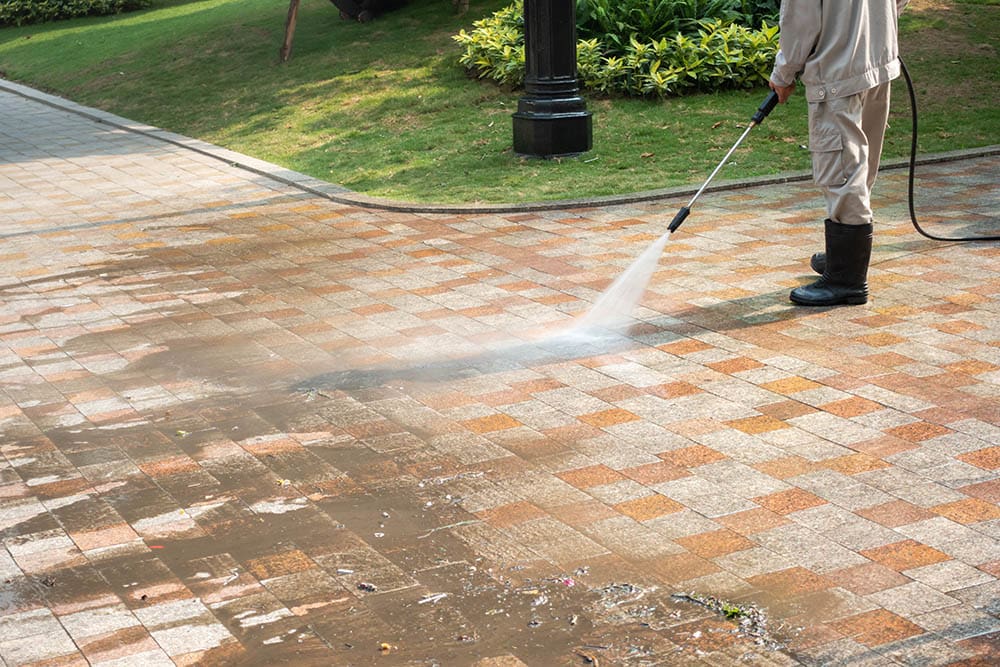
So, How Fast Does It Dry?
Normally, driveway sealant dries completely in 48 hours. Depending on the climate, it might adhere to the surface in 24–36 hours. When it’s cold, humid, and windy, you might have to wait for 48–72 hours. Always check what the bottle/container says. Again, the time it takes the sealer to settle will be dictated by the current weather. Still, this should give you a rough estimate.
In most cases, driving on a driveway treated with a seal coat will be safe after 24 hours. However, to avoid any unwanted consequences, it would be wise to give it 2 full days to dry. And if you’re driving a full-size truck or SUV, 72 hours will be more appropriate. And what about walking? You can put your feet on the sealant after 24 hours.
What’s the Best Time to Apply It?
It should be a hot, sunny day (55-90 degrees F and 40% humidity). Does the temperature really matter? Yes, it does: the colder it is outside, the more time the seal coat will need to dry. If you live somewhere in Florida or Arizona and the sun is up most of the day, the sealer will dry much faster than in a humid, rainy climate in Louisiana or Alabama. Earth-scorching sun rays aren’t recommended either, though.
We don’t want the sealant to dry too fast. As for the best time of the year, it’s spring–summer. Up north, you might have to wait for late summer; in the south, you can apply it as early as late spring. If it’s relatively warm and there’s no risk of rain, go ahead and apply the sealer. A cloudy day is ok; a rainy one is NOT. And for the seal coat to bind with the driveway, the temperature should stay roughly the same for at least 24 hours.
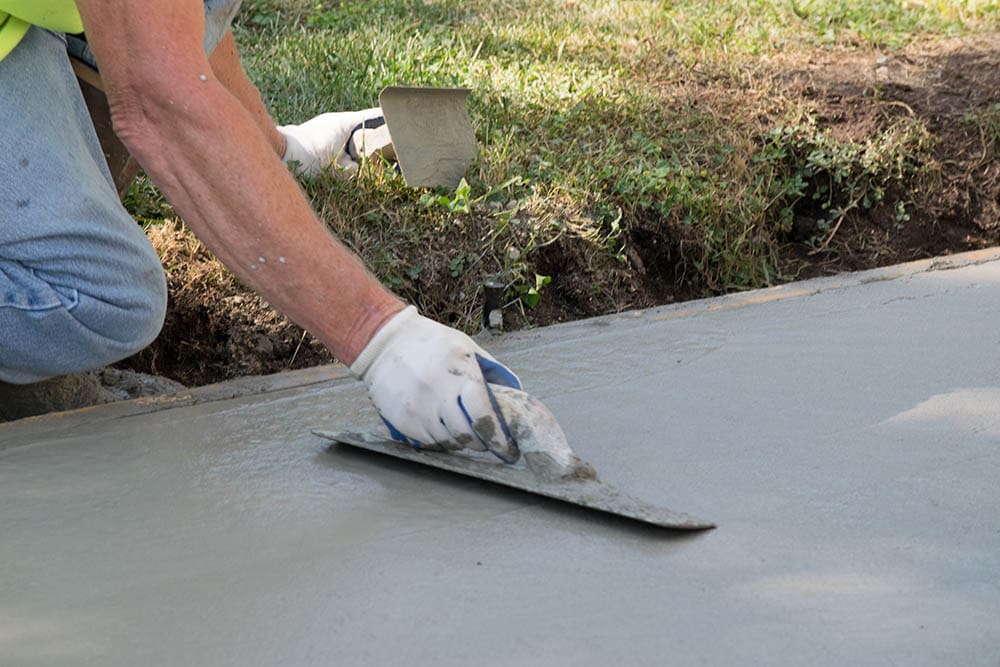
New vs Old Driveway
And one more thing: if the asphalt on your driveway is fresh, you can’t apply the sealer right away. Wait for at least 6–8 months so that the asphalt can cure and compact. If you rush it, the seal coat will do more harm than good. It will, of course, stick to the surface, but you won’t get a smooth, even layer, and the sealer won’t be as effective against weather elements.
How Often Should the Surface Be Re-sealed?
Seal coating is quite effective at protecting the driveway. However, it doesn’t last forever. So, when should you add a new layer? We recommend doing this every 3–5 years. If you wait for too long, the sealer will lose its efficiency and put the driveway at the risk of being damaged. Does that mean you have to refresh it sooner (like maybe in 12–18 months)?
Well, not quite: using too much sealer will cause it to crack, and that’s NOT what we want. The goal here is to give the original layer enough time to wear away so that the new seal coat can “stick” to the surface easily and deliver its best performance. Yes, it’s a matter of balance, and the 3–5-year cycle has proven to be just right for driveways.
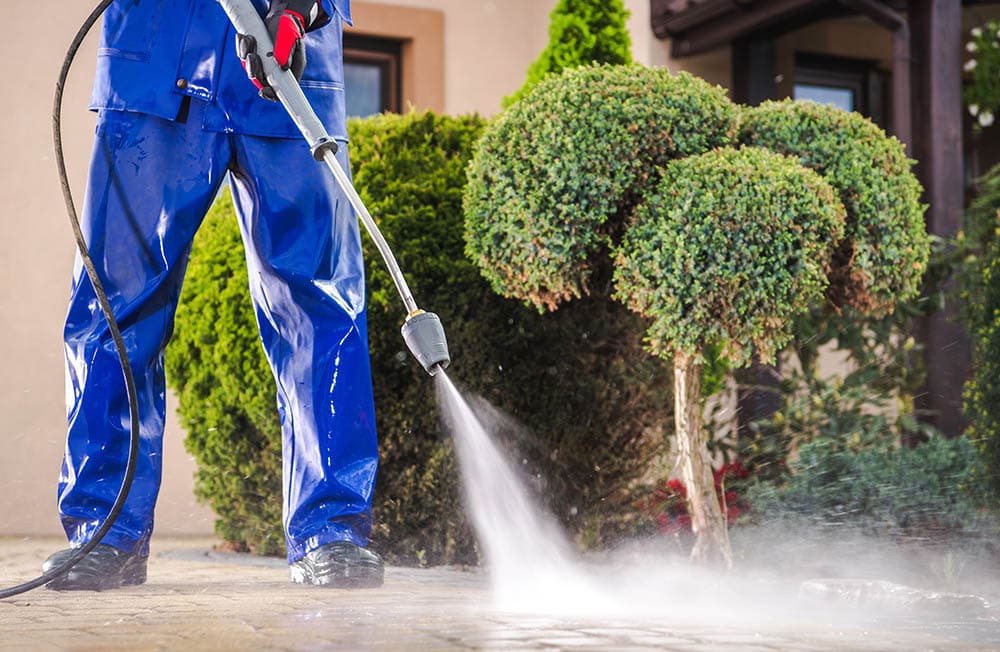
Commercial vs Private Driveways
The industry standard for “commercial” driveway sealers is just two years. We’re talking about public places like malls, cafes, and stadiums, to name a few. But that’s because the amount of traffic is dramatically higher than on the average family’s driveway. If you have just a couple of cars in the garage and only drive them to work and to the closest grocery store, the sealant will last for up to 5 years or even longer.
How to Pick the Right Sealer?
This isn’t rocket science, and pretty much any sealant will do. With that said, to achieve the best results, invest in a high-quality product. Check the label before buying it. If it includes elastomeric materials, UV stabilizers, and premium resins, then go for it. Also, some seal coats suit newer surfaces better, while others excel at protecting older ones.
A quick note: if you’ve got big cracks in the driveway, consider buying rubberized crack/joint filler. Just like the name suggests, it will fill those cracks out and help the sealer spread out evenly. Don’t forget about the crack in front of the garage. Clean out any debris and fill it with the same product. Give it some time to dry and go over the area with a broom.
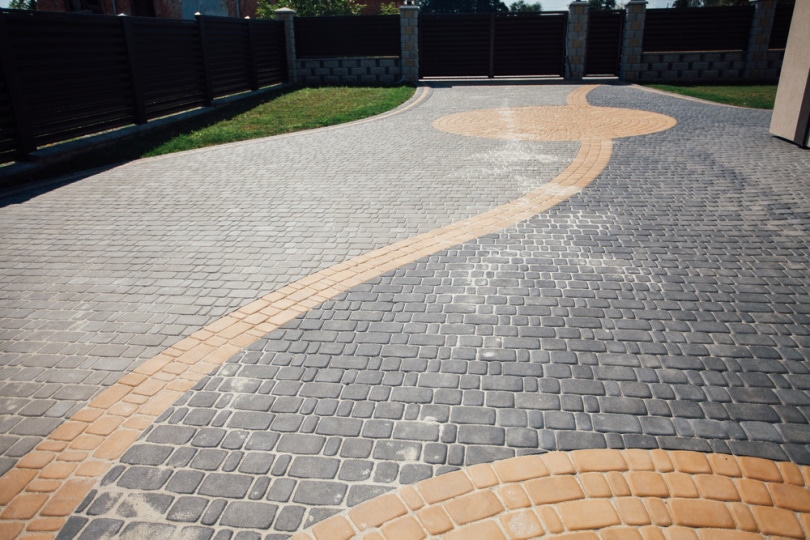
How Much Will You Need?
The big question after you pick the right product and are ready to use it is: how much of it do you need? Don’t worry, this won’t be hard to figure out. Grab a measuring tape and calculate the square footage (measure the length and the width and then multiply them). On average, a 5-gallon canister is enough for 400 square feet.
Will one layer do the trick? It will, but, since the sealer is quite cheap, we recommend adding a second one to…seal the deal. Give the first layer 8–24 hours to dry, though. It will be much easier to apply the new layer as you’ll have the right experience. Plus, the whole area will be marked out and all you’ll have to do is just pour the liquid out and distribute it evenly.
Applying a Driveway Sealer: A Step-by-Step Guide
The first thing to do is to remove any greenery (grass and weeds) that you see on the sides of the driveway. You might need a shovel to handle some of the bigger weeds with strong roots. A trimmer will also come in handy. Next, use a garden hose or a power washer to clean the surface. To make sure it’s squeaky clean, apply a healthy amount of driveway cleaner. Are there any oil spots?
They’ll make it harder for the sealant to bond. To fix that, use a coat or two of an oil spot primer. Let it all dry, and only then treat the driveway with the sealer product. Before you apply it, turn the bucket/canister upside down and give it a nice shake. Now grab a brush and get to work. Just spill out the sealant onto the driveway and use a broom to spread it out. Start at the garage door and go from there.
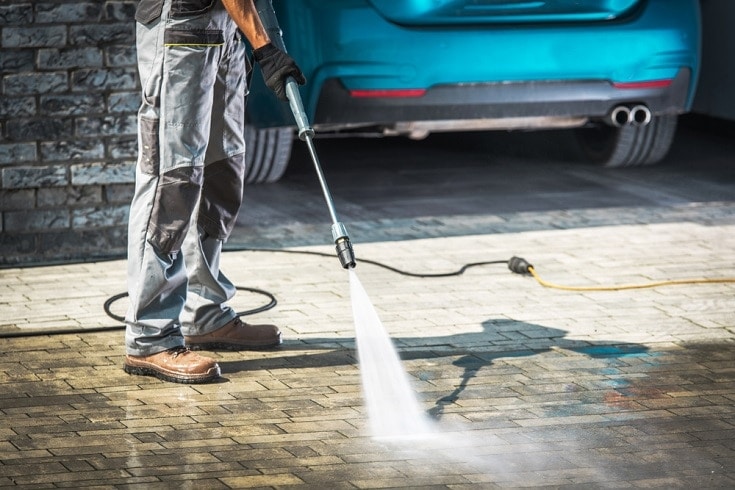
Is the Sealant Expensive?
In the US, most homeowners pay $0.17–0.25 per square foot. That’s the cost both for the product and the labor. So, if you, let’s say, have a 400–500-square foot driveway (the average size for most households), that will set you back $70–120. This is a very fair price given the fact that one layer will last for 3–5 years. A quick note: contractors charge 30–50% of the total cost; that means you’ll save a lot if you do this manually!
 Conclusion
Conclusion
Sealers are arguably the best product for protecting a driveway from natural elements and increasing its lifespan. They take very little effort to use and don’t cost a lot. On top of that, they are equally effective for concrete, asphalt, bricks, rocks, and other materials. The sealer will not only make the surface last longer but also look better.
As long as you use it regularly, it will keep water, spills, the sun, and air (oxidation) from permeating the driveway and ruining it. As a bonus, the seal coat will make it easier to keep the driveway clean. So, pick a product that you like, apply it generously, and save big bucks by avoiding expensive repairs in the future!
- How Much Does Asphalt & Driveway Sealing Cost?
- Asphalt Paving Blog – 7 Sealcoating Facts
- How Often Should a Driveway be Sealed?
- The Ultimate Guide To Driveway Repair
- Learn When The Best Time To Sealcoat A Driveway Or Parking Lot Is
- BEST WEATHER CONDITIONS FOR SEALCOATING PARKING LOTS IN CENTRAL PA
- How Long Before Driving on a Sealed Driveway is Safe?
- Driveway Sealer – How To Apply – Menards
- WikiHow – How to Seal a Driveway
- BENEFITS OF SEALCOATING
Featured Image Credit: The Toidi, Shutterstock
Contents
 What is a Driveway Sealer?
What is a Driveway Sealer?